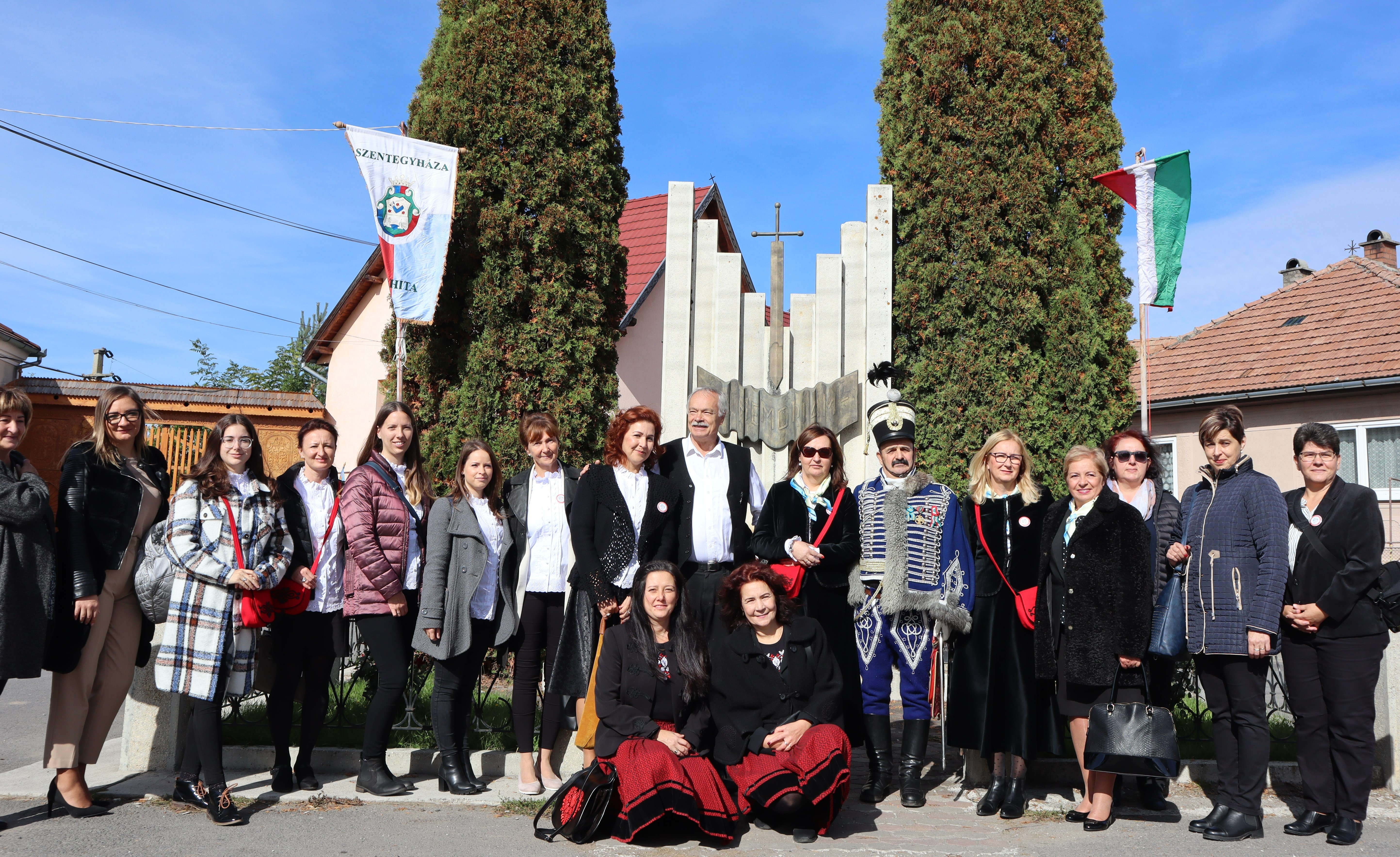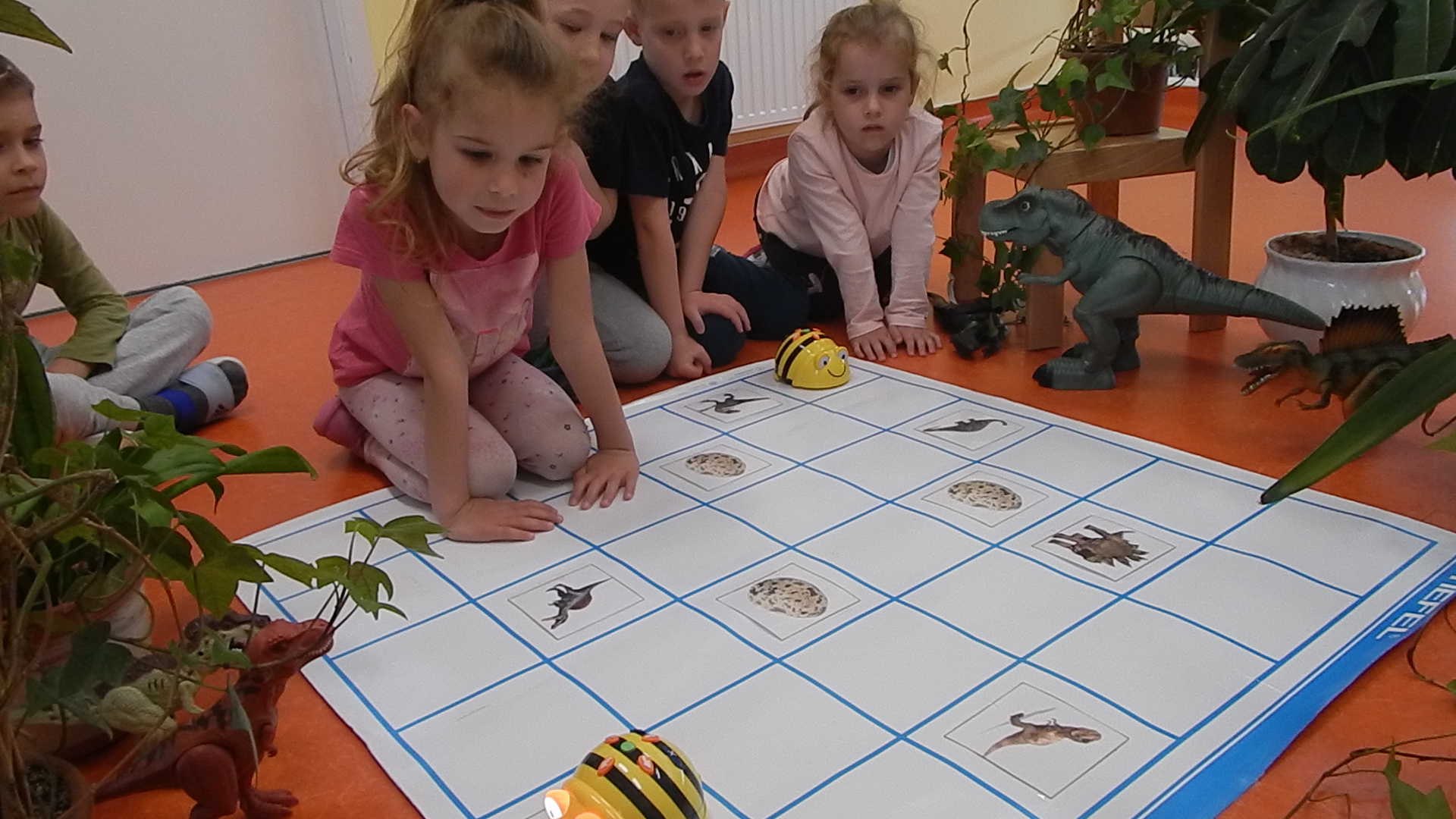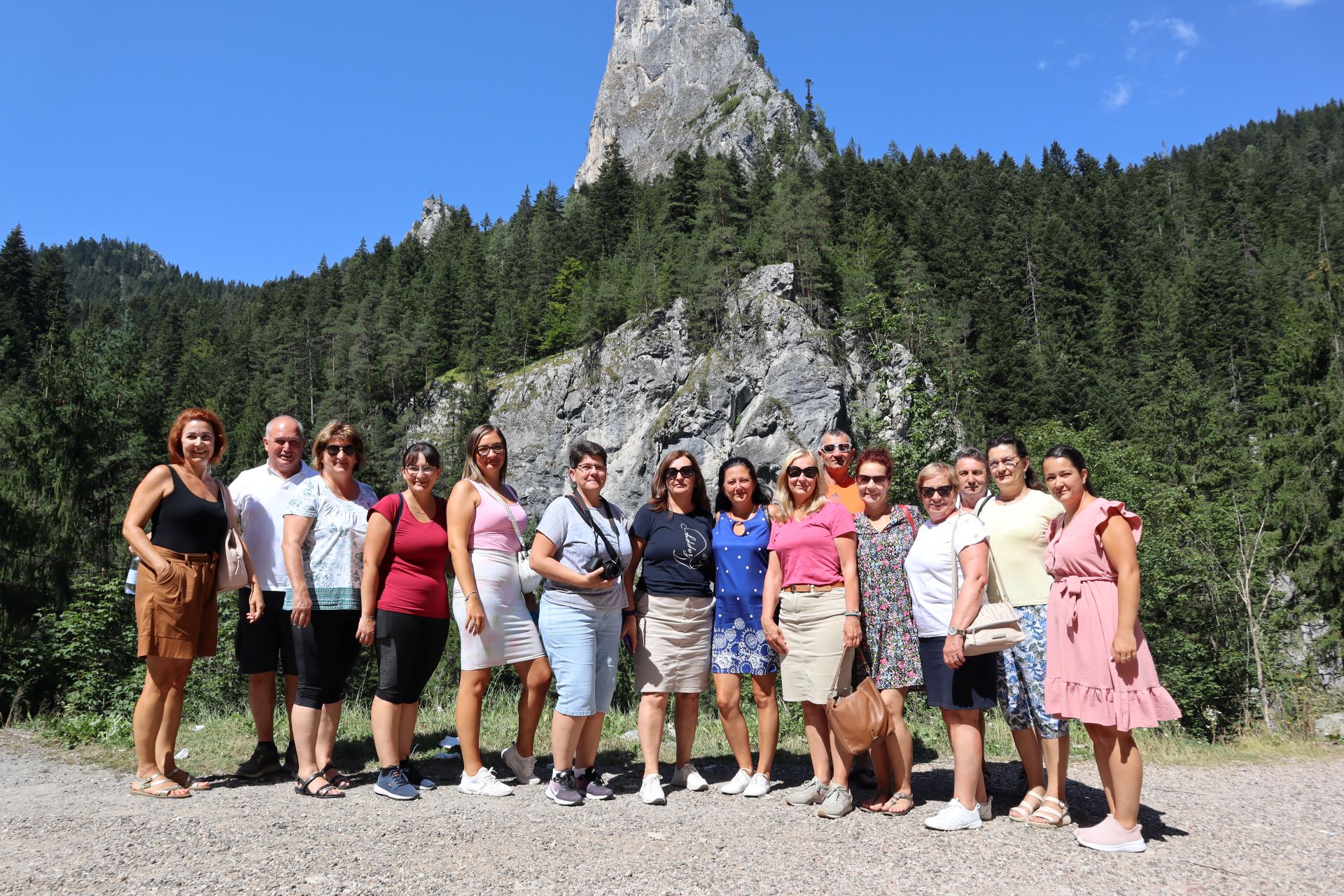
Competencies, Paths, Opportunities in International Teamwork. This award-winning project comprehensively explores the theme of sustainability education, supported by digital elements.
KULCS Programme - Key to a Sustainable Future in Preschool Education
Awarded Institution: Nagykanizsa Központi Óvoda (Nagykanizsa Central Kindergarten)
Project Title: Competencies, Paths, Opportunities in International Teamwork
Interview with Geröly Krisztina, Project Coordinator of the KULCS Program and Deputy Director of Nagykanizsa Central Kindergarten.
What need prompted you to apply for the project?
In 2019, our first Erasmus+ program, "Life” addressed the themes of sustainability and lifelong learning. We aimed to continue the successful project and find modern solutions to global issues affecting our planet. Our approach involved new, contemporary pedagogical methods, integrating digital tools to meet generational expectations. Additionally, we observed that many preschools lacked access to these innovative methods and best practices. With our program, we aimed to support the development of modern preschool education and share our pedagogical practices on this topic.
What was your goal in launching the project?
Building upon sustainable development goals, we aimed to create an active, activity-based program series that would enable our children to become critical thinkers and active citizens eager to contribute to a liveable world. Through knowledge, experiences, and activities, they would acquire new skills and attitudes to help them manage change and stand firm. To understand environmental issues and facilitate effective mindset shifts, we incorporated digital tools and techniques. Our goal was to develop the digital skills of educators, children, and parents, compensating for disadvantaged socio-cultural environments.
How did preschool educators learn from each other through the project?
We organized international partner meetings, conferences, and workshops. During mobilities, learning and training activities at various international locations allowed educators from partner institutions, as well as invited guests, to learn from each other. We built upon the host institution's additional knowledge, resources, and opportunities. We also focused on knowledge sharing within institutions and opportunities for adaptation.
What sustainability topics did the preschoolers explore, and what methods did they use?
The project was built around sustainable development goals. We addressed climate protection, renewable energy, recycling, conscious and responsible consumption, biodiversity, clean water, quality education, and sustainable communities. We observed weather patterns and transportation habits.
We conducted measurements, created statistics, joy-sadness maps, and evaluations. Children's laboratory experiments, small scientific investigations, joint presentations with parents, field exercises, and excursions enriched the program.
What digital tools did you incorporate into the project?
Our preschools are well-equipped with digital tools that support the project's implementation. Laptops, tablets, smartphones, smart displays, interactive boards, and projectors were seamlessly integrated into activities. The smart use of these tools, following the principle of "when, what, why, with whom", guided the project. Robotics and coding played a significant role. Bee-Bot robots are versatilely developed to support children's cognitive operations and provide motivation.
Could you highlight some memorable moments from the collaboration?
We have many experiences and memories that we often recall. It's difficult to choose just one, but the sight of the blooming Tisza River and the mayfly emergence remains with us as a natural wonder. An unforgettable experience was attending a concert by the renowned Fili, the Prima Primissima award-winning Szentegyházi Children's Philharmonic, within our Transylvanian partner's community. It was uplifting and touching to listen to the 150-member children's choir and orchestra nearly a thousand kilometres from Hungary. This community, preserving its Hungarian identity, culture, and traditions, set an example for us in patriotism, belonging, and unity.
What processes were initiated in the kindergarten as a result of the KULCS project?
Educators became more familiar with the theme of sustainability and the interpretation of sustainable development goals in preschool education. The development of digital competence among participants was measurable. Digital tool usage, robotics, and pedagogical work became more conscious, courageous, and versatile.
Institutional relationships expanded, strengthening cooperation with Hungarian-speaking communities in the diaspora. We created a methodological publication titled "KEY to a Sustainable Future – Smart Content, Smart Tools in Preschool," offering ideas and adaptable practices for preschool educators. We continued several elements from the project, such as our "On Foot and by Bike" program and "Preschool Olympics," which we organize annually. Our kindergartens also participate in Digital Week and Code Week.

How does the Erasmus+ project transform the daily life of the kindergarten?
Erasmus+ allowed us to implement projects with international partners, adopt good practices and knowledge from each other. As a result, educators' professional and pedagogical work, as well as their methodological culture, have been enriched. Collaboration among leaders and preschool educators has become more effective, and teamwork has improved. Our professional relationships have expanded, and the recognition and prestige of our institutions have increased. Organizational culture and institutional structure have developed.
Sustainability now defines our daily activities; it is present in every preschool project. Through digital pedagogical methods, tools, and robotics, we have created an inspiring 21st-century environment that broadens opportunities and provides guidance to parents toward value-creating solutions.
In your opinion, what was the greatest benefit of the project for the participants and the institution?
The project introduced a new approach to environmental education and the Green Kindergarten program. It emphasized the importance of quality pre-school education and modern pedagogical practices. It built upon the cooperation and activity of children, parents, and educators. Interpreting sustainable development goals in preschool education and introducing them through modern pedagogical methods, including digitalization and robotics, provided numerous opportunities for the development of institutions and participants.
| Through experiences and activities, participants have become more sensitive to environmental issues, developed their skills and competencies, and shaped their attitudes. Thanks to the program, we learned to collaborate more widely, as several of our partner kindergartens jointly implemented the project. Collaboration was of a high level at all stages. |
Have you noticed changes in the daily life of the institution, in the mentality of those involved, and in the development of an international perspective?
Our kindergarten's daily activities have become more active and open. What Erasmus+ promotes, "New Opportunity. New Perspective," we fully experienced, as many new doors opened for us. We received invitations from various places to share our experiences and encouraged other kindergartens and schools to participate in the program.
It was a source of pride that, upon our encouragement, kindergartens attempted and successfully won grants, which they later thanked us for. Leadership and the communities of our partner kindergartens have become more courageous regarding international programs and relationships. We maintain friendly and professional relationships with our international partners. Educators' self-assessment and organizational culture have improved. We strive to expand our international connections, and the eTwinning program provided a good opportunity for this. We continue to take advantage of Erasmus+ opportunities, as we applied again in 2025.
What are you most proud of regarding the project?
The project, completed in 2021, addressed a very novel and timely topic, as kindergartens had limited practice in using digital tools and robotics. A new phase of the Erasmus+ program began, and subprograms were also modified. We are proud that we created a high-quality project that received 96 points in the evaluation, surpassing many institutions in the first round of supported applications.
How did you communicate about the project?
Dissemination accompanied the implementation and continues to be important for sharing and integrating our results and experiences into our work. We communicated about the project, its results, events, and programs at the institutional, local, regional, national, and international levels. Our main target groups were parents, educators, and the maintainer.
We presented the project on various online platforms, including social media platforms, our website, and we appeared in local and national TV channels, newspapers, and professional journals. We organized conferences and professional days and participated in the Erasmus Days event series. We were invited to the ELTE Robotics Coding in Early Childhood Conference, where we held a lecture and workshop.
In connection with our program, we participated in Digital Week, and our projects were included in the Digital Methodology Repository. In 2022, Nagykanizsa Central Kindergarten received the title "Social Innovation of the Year 2021," awarded by the Ministry of Human Capacities (EMMI) based on our Erasmus+ programs, achievements in developing digital culture, and cooperation with parents. The Educational Authority recognized our project as a base institution, widely introducing it.
Which other social actors might find the results and experiences of the KULCS project interesting and useful?
The KULCS project addressed topics and areas that should be important for all members of our society who are concerned about our future. In addition to our direct partners, we offer useful and adaptable practices for higher levels of our public education system. Schools can continue what we started. Civil organizations, local communities, and associations can also benefit from the programs.
What does receiving the Excellence Award mean to you?
| It is a great honour and immense joy, an institutional and individual professional success. It feels good to have our work and results recognized, demonstrating that significant achievements can be made even at the first level of the public education system, in kindergarten. It catalyses further goals and activities. |
Photos: KULCS Program – Nagykanizsa Central Kindergarten
Introducing the 2025 Erasmus+ Nívódíj (Excellence Award) Award-winning projects!
Last modified: 30-06-2025












_(2).JPEG)





